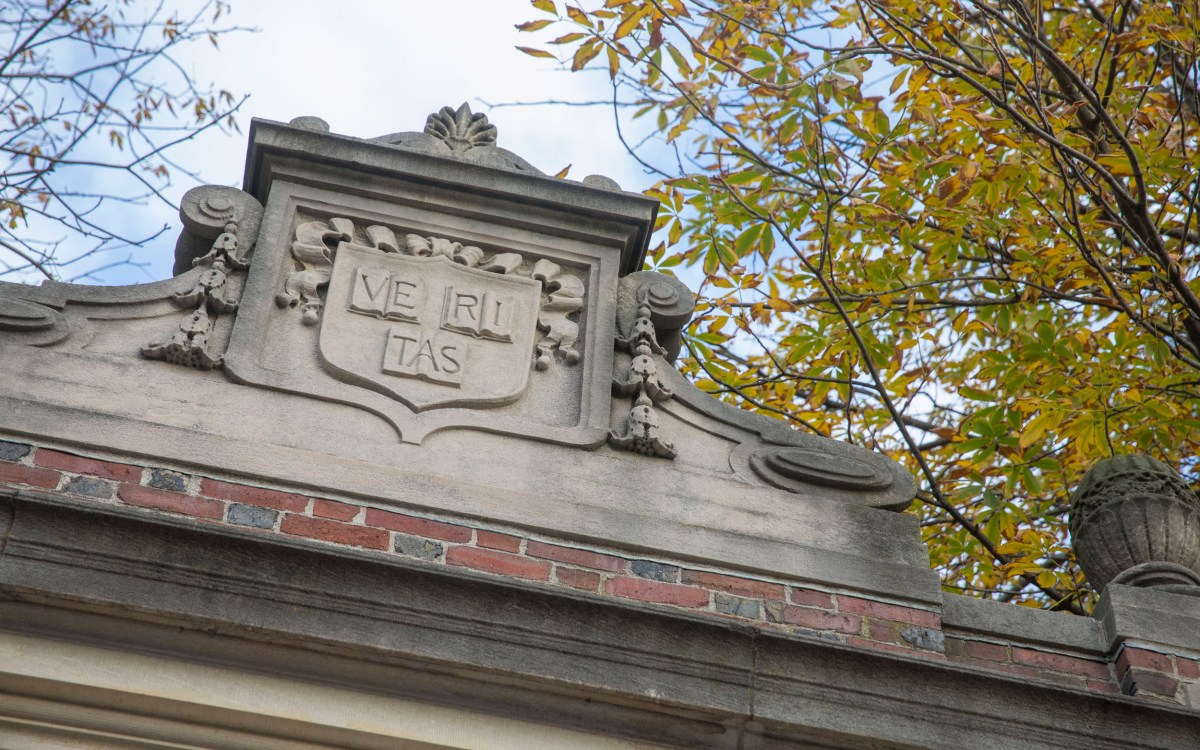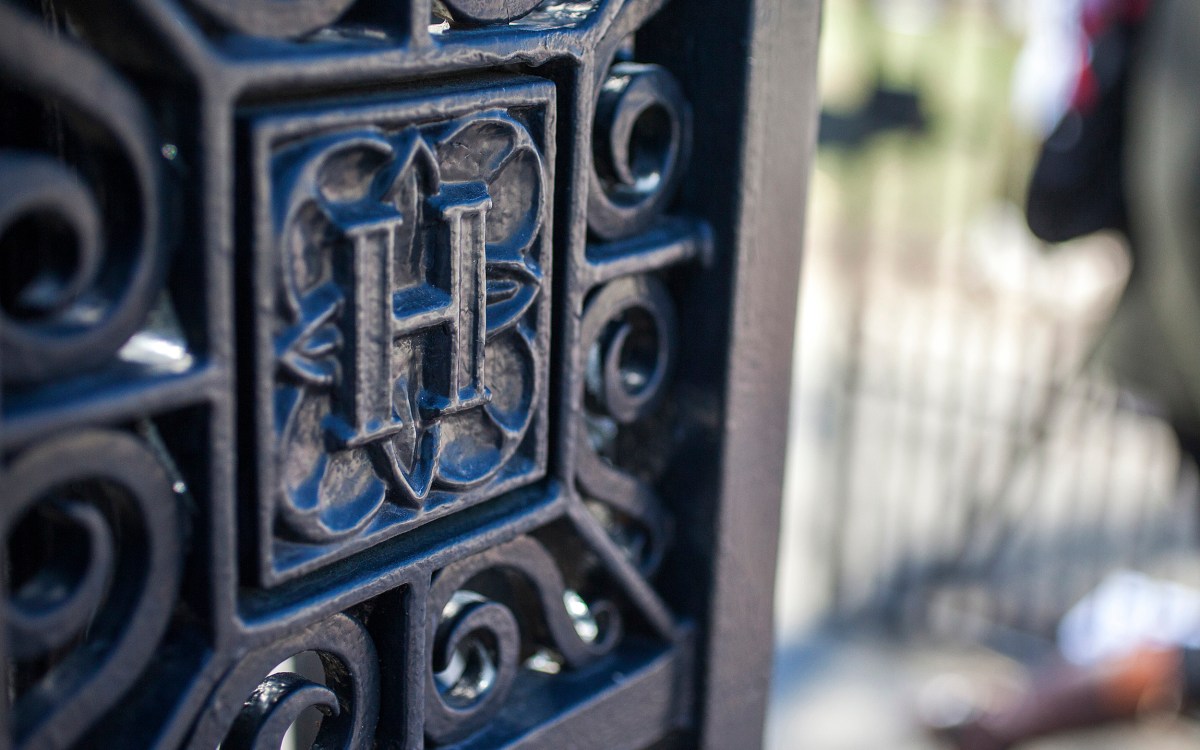
Hundreds of individuals and several prominent organizations filed briefs in support of Harvard’s admissions policies.
Rose Lincoln/Harvard Staff Photographer
Hundreds of experts, scholars back Harvard in admissions suit
They file myriad briefs supporting University’s case; Justice Department backs plaintiff
More than 500 social scientists, 16 statisticians and economists, numerous Asian American organizations, Harvard student and alumni groups and coalitions, the American Civil Liberties Union, and the Asian American Legal Defense and Education Fund filed briefs on Thursday in support of Harvard University’s admissions policies.
The individuals and organizations join a growing list of those who consider the admissions lawsuit an attack on inclusion and diversity in higher education and a rejection of existing Supreme Court law. The suit, which was brought by Edward Blum and his group Students for Fair Admissions Inc. (SFFA) and which drew Justice Department support Thursday, alleges that Harvard discriminates against Asian Americans in its admissions process.
“We have always said that we believe in the consideration of race in admissions as a means of supporting diversity and creating equal opportunity,” said Jeannie Park ’83, president of the Harvard Asian American Alumni Alliance (H4A), which has about 6,000 members representing all of Harvard’s Schools.
The H4A board voted unanimously Tuesday to add its name to a brief filed by the NAACP Legal Defense Fund representing student and alumni groups that support Harvard’s use of race as a factor in its whole-person admissions review. The H4A, the Harvard Black Alumni Society, the Association of Black Harvard Women, and 21 Colorful Crimson joined with the other 21 groups that filed a brief last month in support of Harvard. In their Thursday filing, the four organizations noted a “collective interest in — and commitment to — combating bias, dispelling stereotypes, enhancing mutual respect, and fostering interactions between students that go beyond tokenism” and said they “firmly believe that the admission of a diverse array of students is crucial to these efforts.”
Park said H4A also believes “diversity creates the best educational environment for everybody, including Asian Americans,” and that Blum, the architect of numerous lawsuits challenging Civil Rights protections in recent years, has recruited Asian American students simply to further his latest legal goal. “Our organization rejects that motive,” said Park, “and we reject being used in this way, as a wedge to end race-conscious admissions.”
Mukesh Prasad ’93, a board member and vice president of H4A, submitted an individual statement in connection with H4A’s official brief. Prasad wrote that his exposure to a range of students while a Harvard undergraduate still resonates.
“The invaluable cross-cultural understanding I gained still serves me today as I deal with patients, faculty, and hospital staff from various cultures in my work in New York City as an otolaryngologist and head and neck surgeon, and serving as the chair of the Weill Cornell Medical College’s Faculty Council.”
As part of its Thursday filing, the Asian American Legal Defense and Education Fund (AALDEF), which submitted its brief in conjunction with 19 other Asian American education and youth-serving organizations and higher-education faculty, said there was a lack of evidence supporting the SFFA claims.
“Although SFFA alleges that there has been negative action against Asian Americans in Harvard’s admissions process, AALDEF has not identified any record evidence showing intentional discrimination against Asian Americans. Moreover, rather than vindicating the rights of Asian Americans, SFFA’s apparent true aim is to dismantle race-conscious admissions altogether.”
The American Civil Liberties Union (ACLU) and the ACLU of Massachusetts filed an amicus brief opposing the plaintiff’s motion for summary judgment based on a range of factors, among them Harvard’s constitutionally protected right to academic freedom.
SFFA’s proposal to eliminate consideration of race from admissions would interfere “with Harvard’s First Amendment right of academic freedom. A university’s academic freedom affords it substantial, though not unlimited, discretion to determine the composition of its student body,” the ACLU filing states. Such freedom, it continues, “encompasses the university’s decision that an individual’s multifaceted identity, including her race, is relevant to her contributions to the university.”
Last month more than 70 colleges, universities, and alumni and student groups submitted amicus briefs in support of Harvard’s admissions practices and called for the court to grant summary judgment to Harvard in the case. In its own filing on Monday, Harvard again rejected SFFA’s claims, and reiterated its call for summary judgment in the University’s favor. The case is set to begin trial on Oct. 15.
Harvard’s latest brief calls SFFA’s filing opposing summary judgment for Harvard “laden with invective, mischaracterizations, and in some cases outright misrepresentations of the record” and says it “fails to compensate for the lack of evidence supporting SFFA’s claims. Harvard’s admissions practices are entirely consistent with the law and necessary to build the diverse community critical to the success of its students. No reasonable factfinder could conclude that Harvard intentionally discriminates against Asian-American applicants, engages in racial balancing, considers race in a manner beyond what the Supreme Court has permitted, or could achieve its educational objectives without considering race.”
U.S. Attorney General Jeff Sessions’ Justice Department submitted a statement of interest to the court Thursday in support of SFFA, alleging that Harvard’s “raced-based admissions processes significantly disadvantages Asian-American applicants.” Three conservative organizations dedicated to ending race-conscious admissions also filed an amicus brief backing SFFA.
In response, Harvard released a statement saying it was “deeply disappointed” by the Department of Justice’s decision to back Blum and SFFA and to support their “misleading and hollow arguments that prove nothing more than the emptiness of the case against Harvard.”
“Harvard does not discriminate against students from any group, and will continue to vigorously defend the legal right of every college and university to consider race as one factor among many in college admissions, which the Supreme Court has consistently upheld for more than 40 years. Colleges and universities must have the freedom and flexibility to create the diverse communities that are vital to the learning experience of every student, and Harvard is proud to stand with the many organizations and individuals who are filing briefs in support of this position today.”
Vanita Gupta, president and chief executive officer of the Leadership Conference on Civil and Human Rights and former principal deputy assistant attorney general and head of the Justice Department’s Civil Rights Division, said Thursday that the department’s statement of interest supporting SFFA means it “is now backing Edward Blum’s longstanding political agenda to undermine diversity in education and opportunity for millions of young people. In filing this brief, the Sessions Justice Department has once again abdicated its responsibility to enforce the law and protect the civil rights of all people in America.”
Anurima Bhargava ’96, who led the Civil Rights Division’s Educational Opportunities Section in the Justice Department during the Obama administration, said she was surprised the department under President Trump had even chosen to open an investigation of its own, given that the case is already in federal court, a fact that led the U.S. Education Department to dismiss a similar complaint in 2015.
“It just doesn’t make sense when you consider the fact that the case is already making its way through the federal court system.”
Similarly, she considers the Trump administration’s July rollback of Obama-era guidelines intended to help promote diversity in higher education a “purely political move,” timed to coincide with the Harvard case. “The law remains the same,” said Bhargava. “The United States Supreme Court has repeatedly affirmed the right of colleges and universities to use race as one factor in its admissions processes.”
Bhargava called the Justice Department’s statement of interest backing SFFA “a distortion of the law and repeated rulings from the United States Supreme Court. It undermines schools’ efforts to bring students of different backgrounds together and build a stronger and safer America for everyone.”
Born and raised on the south side of Chicago, Bhargava said she knows the importance of a diverse student body. As a Harvard undergraduate, she said she was exposed to students from around the country and around the world with backgrounds and experiences vastly different from her own.
“I think I learned more from the interactions I had with my classmates than I did in class,” she said. Those exchanges “were a fundamental part of my college education.”







